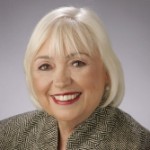
Almost 30% of us are caring for a family member according to research by the Family Caregiver Alliance. As Baby Boomers grow older, the number of us needing some kind of care or support will rise.
Most families and individuals are unprepared for this new role – it is thrust upon them by a new medical diagnosis, an accident or age related changes in sensory or mobility functions. We do our best because sometimes we are “it” and sometimes because we truly love and care for the elders in our life and want to give back to them all that they did for us in years past.
The issue is that we step into this quagmire without the tools or resources we could use; not because we are not smart, but because we don’t even know what to ask for or what we should be receiving to assist us in our new role as “family caregiver.”
Five areas for you to gain tools for the long winding road of giving and of receiving care.
1. What is normal: Learn about some of the normal issues in aging. Take a class or learn what losing one’s sight or hearing might be like. Learn about normal changes in taste and touch that can happen in the course of growing older. When we are sensitive to these changes we become much more patient with those for whom we are caring. Learning about tools to assist us as we age and experience these losses keeps us from being isolated.
2. Benefits: Know what you are entitled to both nationally and locally. Check out the government website: www.benefitscheckup.org to see if you are tapping into all the resources you can to help you with care or finances. Consult with a Professional Care Manager to see if there are specific programs in your hometown or local area.
3. Memory loss: About 50% of us who reach the age of 85 will experience some type of memory loss that can affect processing information, sequencing and our ability to be safe living alone. Learn about illnesses that affect memory that can be reversed, the many different kinds of dementia; and how to interact and preserve the dignity of those with those illnesses. We offer a monthly class and the Alzheimer’s Association has wonderful opportunities as well. It is critical that families caring for a person with a dementia be part of a support group or find a counselor so the caregiver does not experience guilt, stress or burnout.
4. Options for Living Choices: Everything from staying in your own home and being connected to a “village” to living in a “Life Care Community” is available now. Attend our “Family Circus” (see below) Saturday, October 26th and go to one of the breakout sessions about all of these options. It might be your plan to stay in your own home – so educate yourself for the possible “what ifs” of a longer life.
5. Legal Tools: Be sure to check in with your Estate Planning Attorney about changes in Trust language. Check your legal documents once a year. Be sure you have a Durable Power of Attorney for Health Care and if you have strong feelings about “end of life” issues, complete a POLST (Physicians Orders for Life Sustaining Treatment) form. Most important, be sure that those you choose to be your advocates know your values, wishes and wants so you can have the life you choose.
It is a challenge to find a class that covers most of these issues – but we are co-sponsoring a day-long seminar for family caregivers (those who are caring now, will care in the future or those of us who might need care). The Family Circus: Walking the Tightrope of Elder Care and Aging at and co-sponsored by Lafayette-Orinda Presbyterian Church (LOPC) in Lafayette.
There is no charge and the speakers are experts who will give you the guidance you will need on your journey of care giver or receiver. Lunch will be provided and many informative service providers will be there to share their offerings. Limited seating, so register today.
Printer Friendly Version of Newsletter (PDF)
The Family Circus: Walking the Tightrope of Elder Care and Aging
Saturday, October 26, 2013
8:30 am to 3:30 pm
To register or for more info, go to http://tinyurl.com/lpk4tlg or call 925-937-2018






